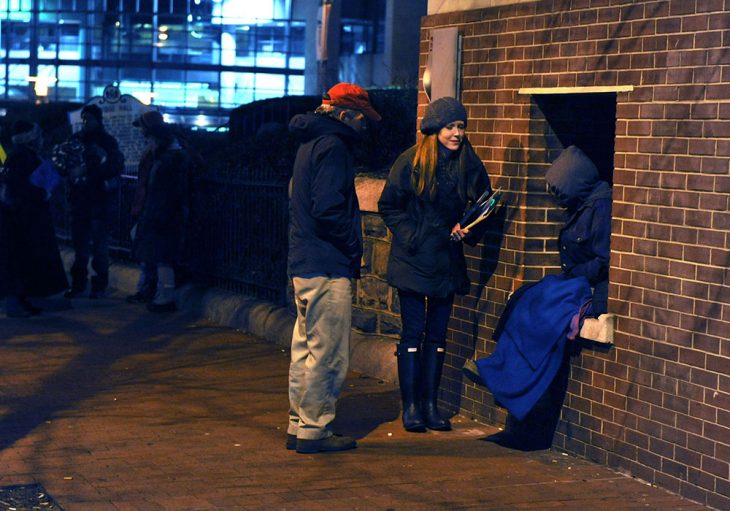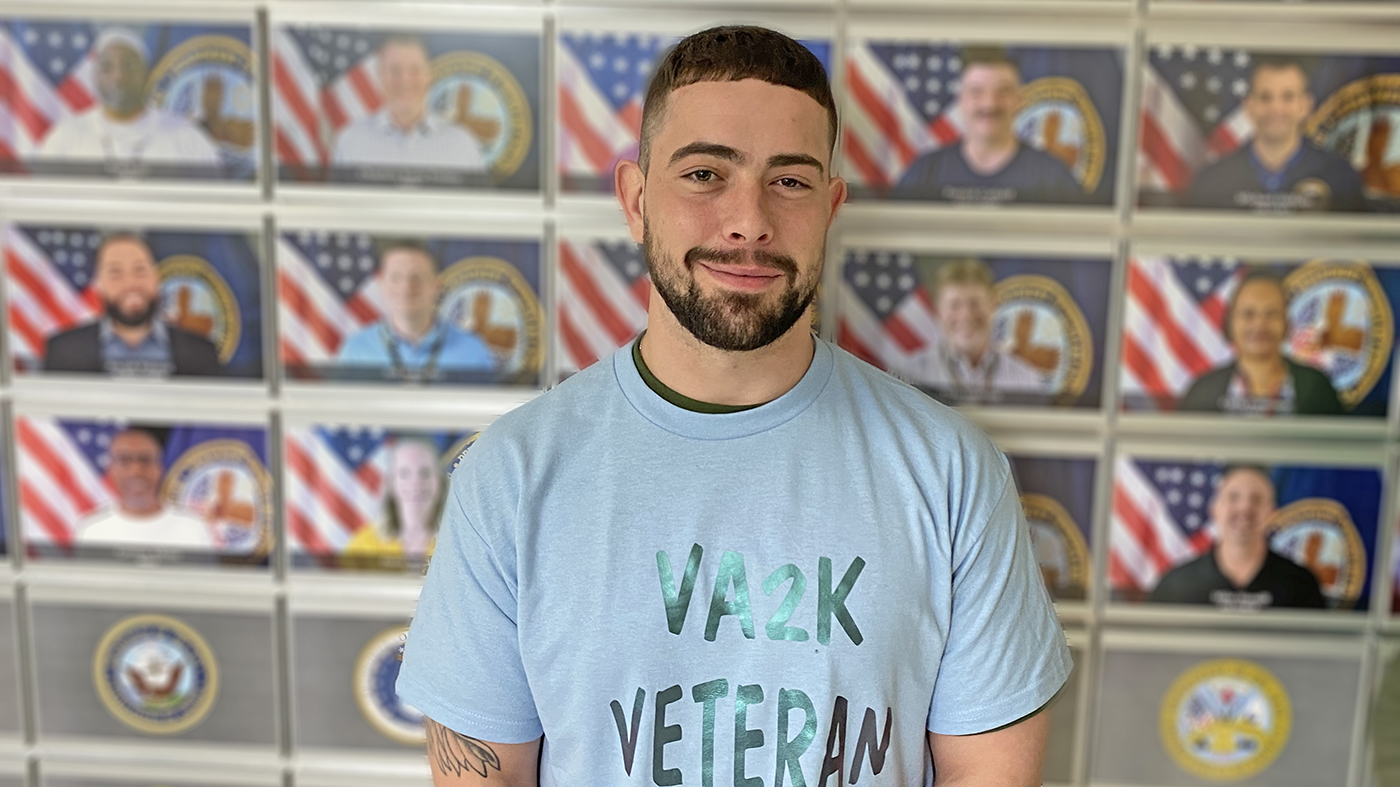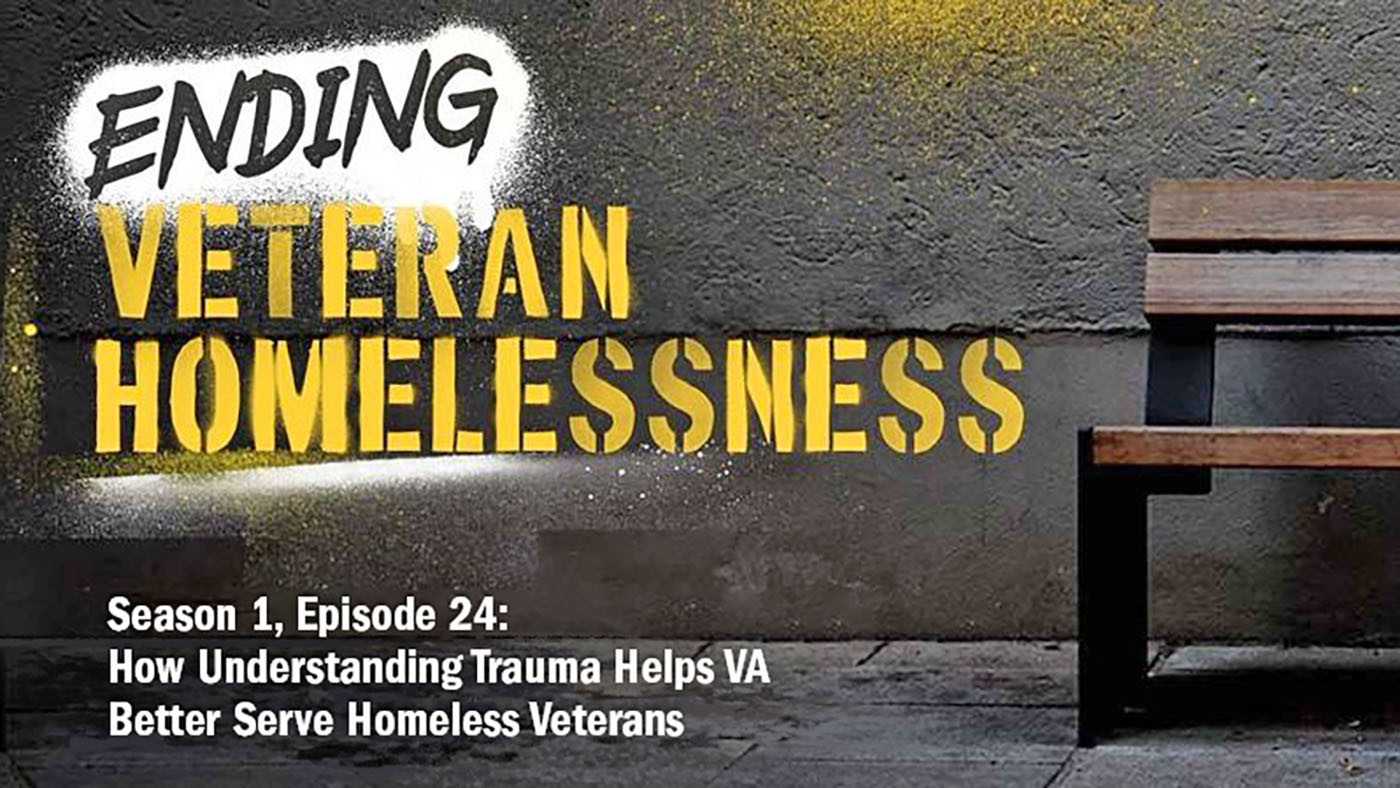Michael A. Williams had a bedtime ritual. Each evening he would go through a mental scorecard, kind of his placeholder for life. This was a very personal exercise; each item on the scorecard was a valued life-goal: ‘Get my health issues addressed, particularly my pain management. Own my own home. Nurture family and friend relationships, especially with my mom. Get my financial house in order. Make peace with the Lord.’
Insight, intellect, sensitivity, goal oriented, grounded — Williams has all of the qualities one admires and looks for in trusted friends and employees. You might be surprised to learn Michael developed all of those admirable attributes while living on the streets.

Williams is one of thousands of Veterans whose lives have turned around due to VA initiatives for homeless Veterans, particularly the Compensated Work Therapy (CWT) program and the Housing First program. Buried in the back pages of your newspaper and given modest attention by web and social media outlets, the story of VA’s undeniable success in housing homeless Veterans and supporting them to live independent lives is one of our country’s most encouraging societal turnarounds both inside and outside of government.
Since its initiation in 2010, VA and its partners at federal, state and local levels have cut the number of homeless Veterans by half. And, although homeless numbers will always be a moving target, some major cities such as Philadelphia, Houston, New Orleans, Phoenix, Salt Lake City, and Mobile report they no longer have homeless Veterans sleeping on their streets. As of December 2015, Connecticut and Virginia also reported an end to Veteran homelessness throughout their states.
The impact of VA’s success in reducing drug dependency, housing and re-training Veterans for work has repercussions for all of us. Not only does it heal broken souls and families, it potentially makes our streets safer and lowers tax-payers’ outlays as these Veterans become re-employed. It’s something we are doing right and the fulfillment of an obligation to Veterans we all recognize.
After 12-plus years in the U.S. Marines, a series of health crises led Williams to joblessness, despair and alcoholism. “As a homeless Veteran I wanted a lot of the things that I thought everyone else had. I mean things like respect, responsibility, happiness, independence, employment and a place to live. I was in search of security and some sort of dignity in my life.”
The VA’s Housing First and CWT programs gave him that opportunity. Housing First is a new philosophy in treating homelessness. In the past, in order to secure permanent housing homeless Veterans had to demonstrate they were clean of drugs, psychologically competent and had some source of income to supplement their housing. Now, the stable home comes first and the medical treatment and job training follows. In Williams’ case, after securing a transitional apartment through the Housing First program, he participated in the VA’s Substance Abuse Rehabilitation Program and the CWT employment preparation program at the Washington DC VA Medical Center.
At the VA medical center, Williams found himself. He proved he could get to work on time, manage projects, get along with other staff members and achieve goals. His confidence grew and so did his determination to get his scorecard completed.
In October 2012, Michael was hired by the VA Office of Public and Intergovernmental Affairs’ Homeless Veterans Initiative Office as a full-time Program Support Specialist. In October 2014, he joined the Veterans Health Administration Homeless Program Office. Just this year, Michael moved into his own home, checking off the last item on his scorecard and fulfilling a promise to his mother that he would take care of her in her senior years.
“It has been a long ride and I am so happy and grateful for this opportunity,” says Michael.
If you know a homeless Veteran, or one at risk for homelessness, please visit www.va.gov/homeless to learn about VA programs that could help.
About the author: Michelle Spivak is the senior communications officer in VHA Office of Communications.
Topics in this story
More Stories
Eoighin McGilligan’s transition didn’t turn out as planned... he and his five children were nearly homeless, twice.
On the Ending Veteran Homelessness podcast, learn how the harm reduction approach to substance use can help homeless Veterans.
A unique program at Boston VA uses the principles of trauma-informed care to serve homeless Veterans with empathy and understanding.






